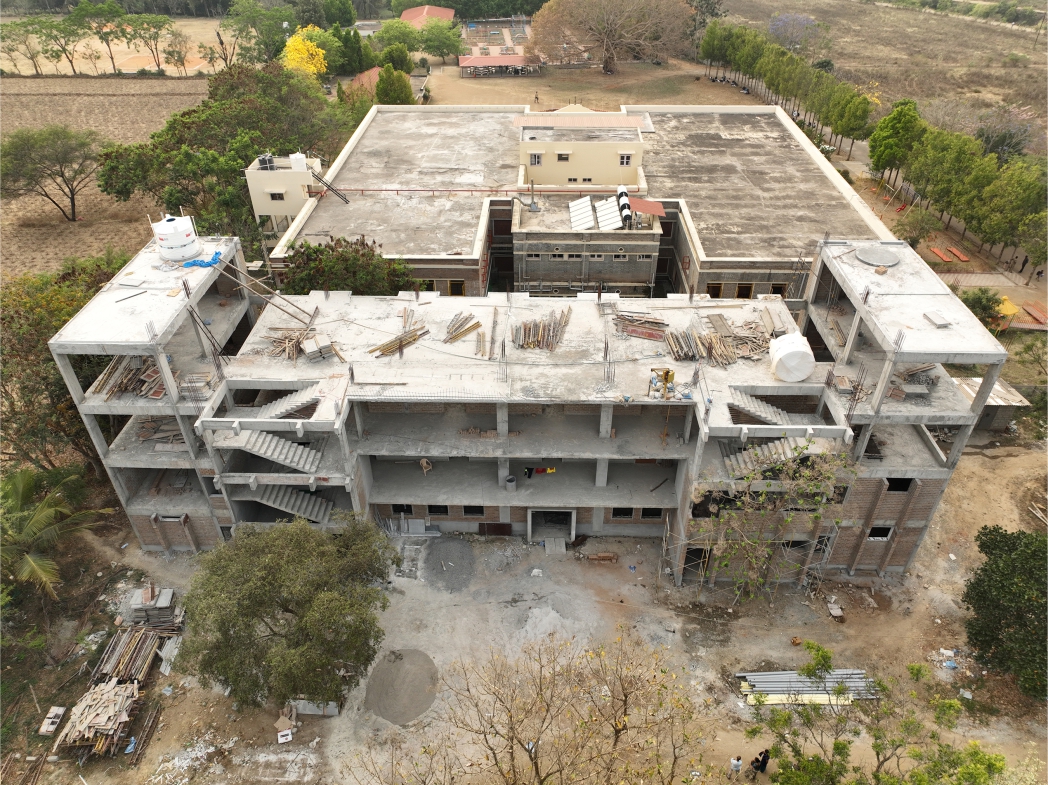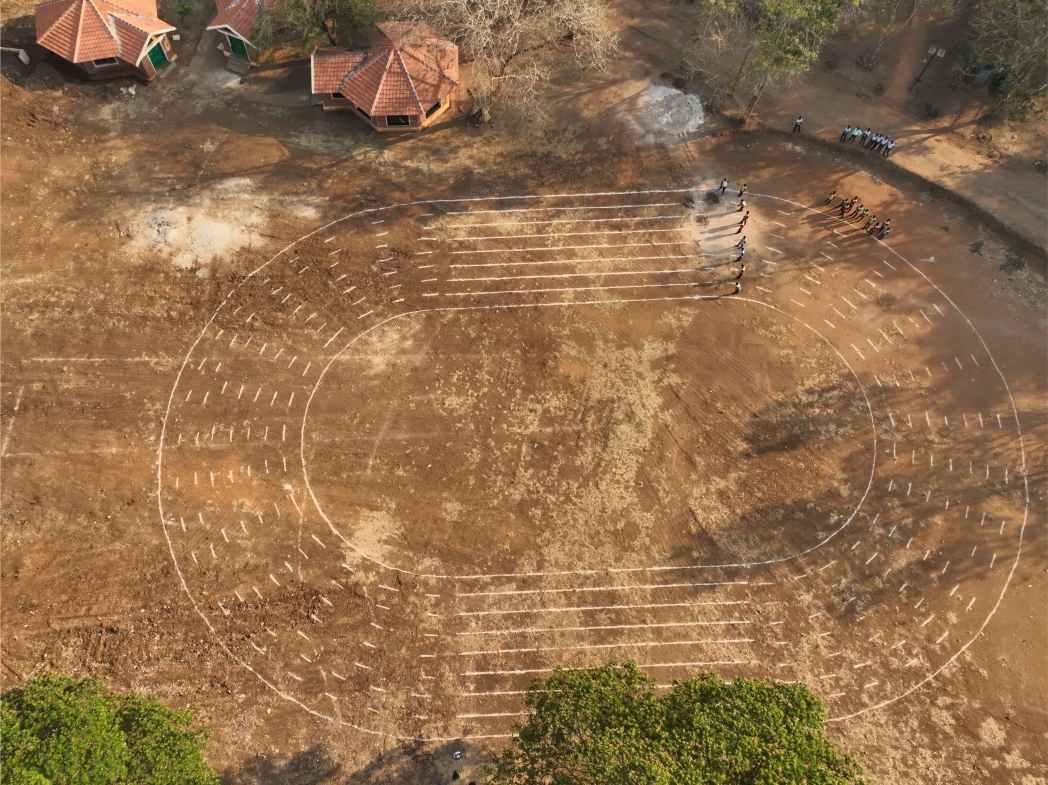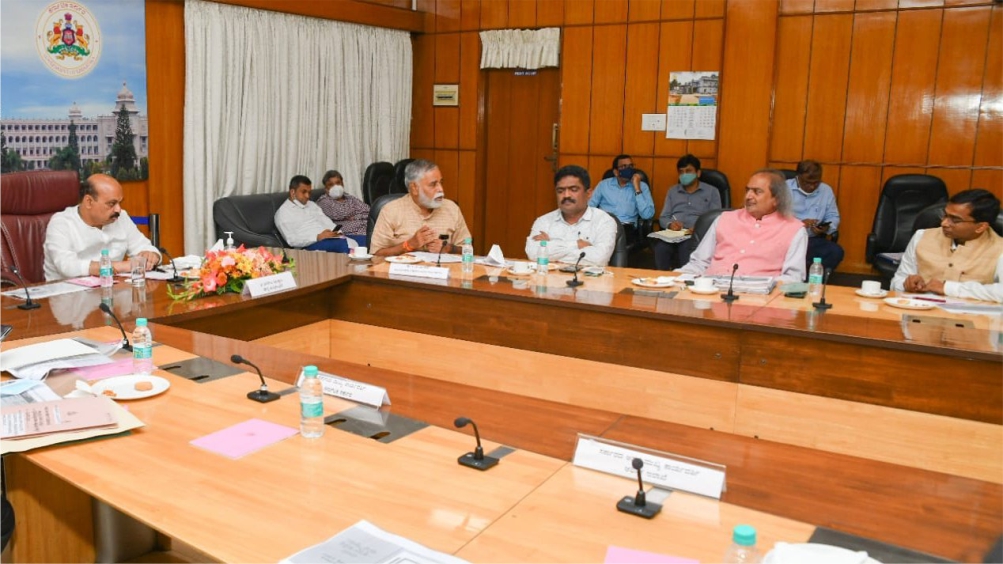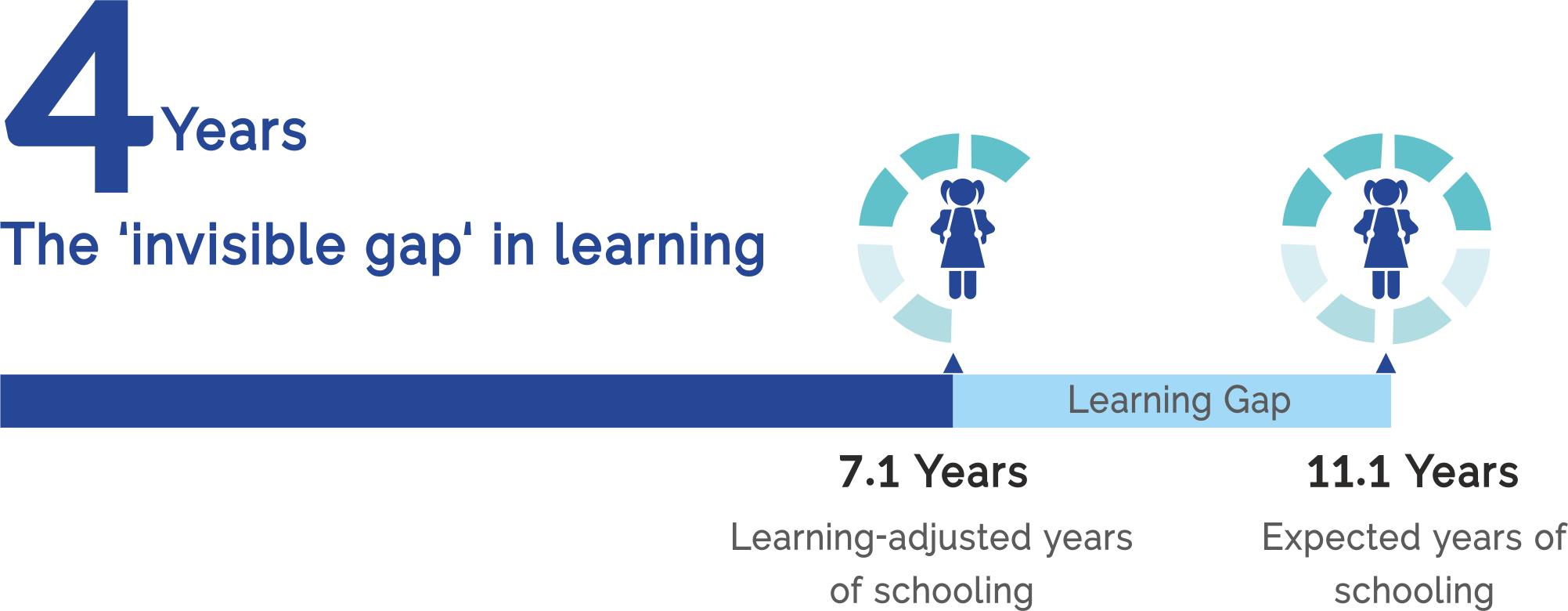Vivekananda Teacher Training and Research Centre
Started in 2006
Hosahalli, H D Kote
Building Human &
Social Capital
Community centric
partnership
Employ local people to encourage ownership
Transform rural and tribal youth to become value based humane teachers
Building Human Capital
Future Teachers of India Course
Launched in 2020, Future Teachers of India is a six month residential program focusing on young teachers with B. Ed or D. El. Ed.
19 Students have enrolled for the program in 2021-22
I wanted to become a teacher. I joined the FTI Course at SVYM. During the training, I learned many things including English and participated in activities. It helped me learn a lot and currently I’m working on a project
called Equitable Education for rural and tribal communities
Lakshmi,
Kanakanahalli Thittu, H D Kote,
FTI Alumnus

Guru Manthan
Guru Manthan, an SVYM initiative towards capacity building of teachers, presented itself as a virtual webinar series ’50 Discussions on Education’, concluded in 2022. The weekly series engaged teachers, educators, innovators and featured distinguished speakers from the learning community. The lectures are conducted online and free for all teachers and the general public to attend.
The webinar series covers diverse aspects of education from policy to practicals, covering wider aspects of education and encouraging cross pollination of ideas. The series had a consistent following of over hundred followers.
50 Guru Manthan Webinars
Watch Guru Manthan Sessions by renown thinkers and educators
Strengthening the ecosystem for equitable education
From Plinth to Policy
In 2021-22, SVYM’s Education sector entrusted with the vital support of donors, partners and well wishers made a stronger comeback from COVID-19 to strengthen the education ecosystem through infrastructure and policy level efforts. A step closer towards building the Human Capital of our younger generation through excellence in education.
Strengthening SVYM’s School Infrastructure
- Construction of 6 new classrooms in VTCL, SVYM’s residential tribal school, to accommodate increasing student admissions
- Fitness Centre & Athletic Track at VTCL for budding tribal athletes
- A new VTCL school bus towards making schooling accessible for primary school students from nearby tribal hamlets
- Construction of Girls Hostel with a capacity to board 180 girl students in VPUC, Saragur
National Education Policy 2020
Since 2011, SVYM’s Education Sector efforts have been aligned and contributing to the recently formulated National Education Policy 2020, applied in both VTCL and VSOE, our residential tribal and CBSE school.
- Equitable education, introduction to basic technology, strengthening school governance and community participation has been the key focus.
- SVYM has been a part of the drafting & implementation of the NEP 2020, drawing from its extensive on-the ground experience in applying them in tribal and rural settings
- By 2025, VTCL and VSOE are envisioned to become NEP Demo Sites
Building Human Capital
To bridge the ‘invisible gap’ in education
11.1 Years
In India, a child who starts school at age 4 can expect to complete 11.1 years of school by her 18th birthday
7.1 Years
Learning-adjusted years of schooling in India based on what children actually learn
4 Years
The ‘invisible gap’ in learning affects the productivity of next-gen workers
Building Human Capital can bridge the ‘invisible gap’ in education
SVYM engages children from a young age through its schools and programs for rural Govt schools, supports continuing education after SSLC through scholarship, academic rigour, preparation for entrance exams, life skills and counselling support and higher education scholarships. Focusing as much on teachers as learners, our teacher capacity building program focuses on building teachers’ capacity in rural areas. Our efforts are towards creating excellence in education through a well connected education eco-system. By building the Human Capital of students and teachers we are also bridging the ‘invisible gap’ in learning leading to more productive next-gen workers.
Investing in children powers up a nation
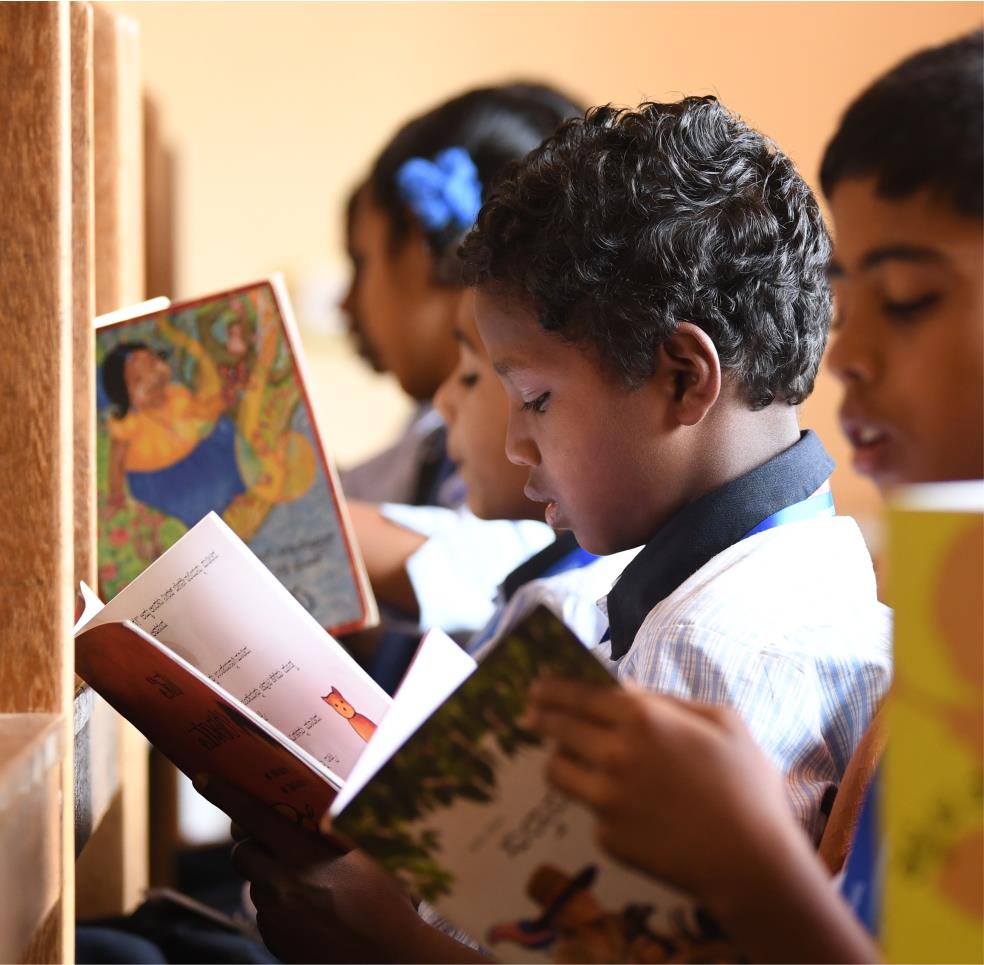
What is Human Capital Index
The Human Capital Index (HCI) quantifies the contribution of health and education to the productivity of the next generation of workers. Countries are using it to assess how much income they forego because of human capital gaps, and how much faster they can turn these losses into gains if they act now.


